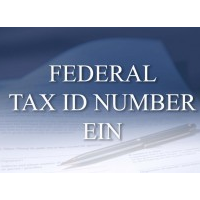IRS Loses $2 Billion a Year to Employer Identification Number Fraud
 (graphic: Small Business Delivered)
(graphic: Small Business Delivered)
Tax cheats are stealing about $2 billion every year from Uncle Sam via fraudulent use of Employer Identification Numbers (EIN), according to a report by the Treasury Inspector General for Tax Administration (TIGTA). Dated September 23 but not publicly released until December 5, the report urges the Internal Revenue Service (IRS) to step up its anti-fraud efforts, although the detailed recommendations are largely redacted in the report’s public version.
Issued by the IRS at taxpayer request, EINs are used to identify taxpayers’ business accounts. Fraudsters either steal someone else’s EIN or falsely obtain an EIN from the IRS to commit tax fraud by filing returns reporting false income and withholding. Based on its review, TIGTA estimates that this kind of fraud may cost more than $11.4 billion in fraudulent refunds over the next five years.
Although the IRS has processes to prevent such fraud, TIGTA identified 767,071 e-filed 2011 individual tax returns with refunds possibly based on falsely reported income and withholding. Of the 285,670 EINs used on these tax returns, 277,624 were stolen EINs used on 752,656 tax returns with refunds totaling more than $2.2 billion, while 8,046 were falsely obtained EINs used on 14,415 tax returns with refunds of more than $50 million.
Generally agreeing with the report recommendations, Peggy Bogadi, commissioner of the IRS Wage and Investment Division, stressed that the IRS also wants to avoid potential delays in processing tax returns like those that occurred last year when it tightened its identity theft filters and millions of taxpayers had to wait months for their 2011 tax refunds.
Bogadi also pointed out that an IRS review of the potentially fraudulent returns identified by TIGTA found situations where employers were at fault for poor record-keeping or incomplete submissions, creating the false impression of fraud by an employee. Stressing that “non-compliance by employers does not equate to refund fraud by employees,” Bogadi wrote that IRS wants to avoid an overly-strict filtering that would “have the unintended result of flagging legitimate returns as being potentially fraudulent.”
-Matt Bewig
To Learn More:
IRS Contends with Billions Lost to Stolen EINs (by Michael Cohn, Accounting Today)
Stolen and Falsely Obtained Employer Identification Numbers Are Used to Report False Income and Withholding (Treasury Inspector General for Tax Administration) (pdf)
- Top Stories
- Unusual News
- Where is the Money Going?
- Controversies
- U.S. and the World
- Appointments and Resignations
- Latest News
- Trump to Stop Deportations If…
- Trump Denounces World Series
- What If China Invaded the United States?
- Donald Trump Has a Mental Health Problem and It Has a Name
- Trump Goes on Renaming Frenzy






Comments